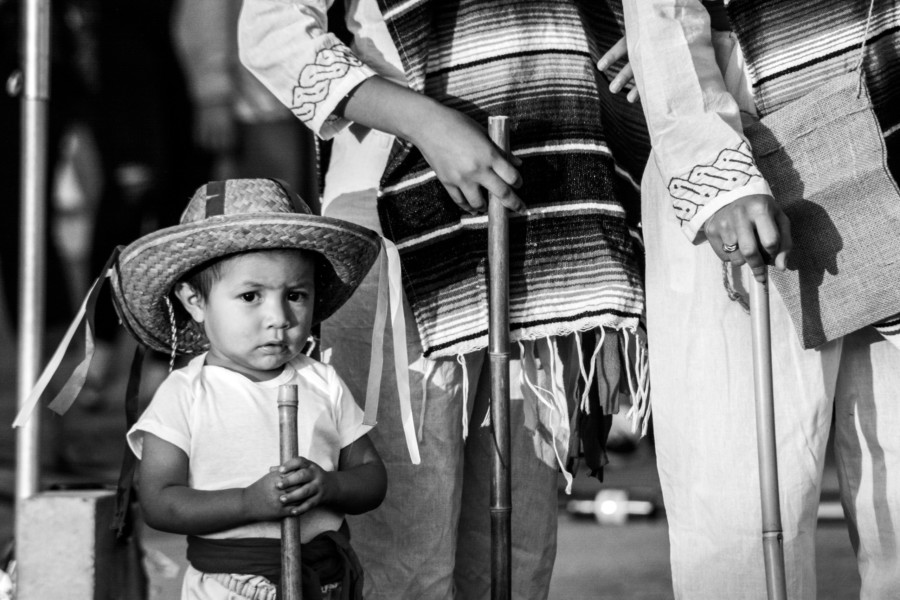The Advantages of Photography Mentorship: 5 Key Benefits
Being a photographer can sometimes feel isolating.
As photographers competing with each other for our livelihoods, it can be challenging to remember we’re all in this together. We all strive to tell stories and capture powerful emotions without speaking a single word – all while working towards progress in this industry. At PhotoShelter we believe everyone could benefit from mentors or mentees – below you can read how two photographers, Miriam Alarcon Avila and Daniella Zalcman, met and connected and find out more about mentorship’s benefits for yourself.
Cover Image by Miriam Alarcon Avila.
Miriam Alarcon Avila is a Mexican photographer, visual, multimedia, and storytelling artist residing in Iowa. Her mission is to pursue her bliss by producing works of art that promote a more sustainable, inclusive, and peaceful world. As a teen inspired by colorful Mexican culture she began taking photographs that were later studied digital photography courses before moving to Iowa with the intent of studying photography further – documenting musicians and performance artists while at the same time celebrating Iowa’s cultural diversity through digital media documenting their works while remaining true to her vision of celebrating the cultural diversity present there
Miriam received a grant from the Iowa Arts Council in July 2017 to work on her photographic documentary project entitled, “Luchadores Immigrants in Iowa”, giving new Iowans of Latino heritage a voice and sharing their struggles as immigrants of Iowa.
Her personal works focus on depicting the lives and struggles of Latinos, immigrants, and minorities living in the US. Her aim is to inspire, connect, encourage, educate, support, and help others experience and engage with a borderless world.
Miriam recently joined our inaugural PhotoShelter Mentorship Program class and met her mentor Daniella Zalcman, a Vietnamese-American documentary photographer based out of New Orleans. Daniella has received grants from Pulitzer Center on Crisis Reporting as well as International Women’s Media Foundation fellowship grants. Furthermore, National Geographic Society awarded Daniella the grant. Additionally, Daniella founded Women Photograph – a non-profit dedicated to elevating voices of female visual journalists – which supports women photographers’ voices.
Daniella’s work explores the legacies of western colonization, from homophobia in East Africa to forced assimilation education of Indigenous children in North America. Daniella is proud to be part of Authority Collective and Diversify Photo; co-found We, Women & Indigenous Photograph; serves on both W. Eugene Smith Memorial Fund board of trustees as well as ACOS Alliance board; she holds positions with these organizations as a proud member.
“When I received the email about being matched with Daniella, it took my breath away! After following her for years and following her as part of my photography classes at PhotoShelter, having her select me as her mentee meant so much,” Miriam says of their relationship (Editor’s Note: PhotoShelter Mentorship Program allows mentors the freedom of choosing three mentees).
“Over the years I had applied to various mentorship programs and workshops – none of them accepted. At first I thought the email saying I was accepted was just another joke!” she shared.
Early on, she invited me to one of her workshops where they discussed mentorship. When they came around to discussing me as one of their mentees, it was so touching for me. Later she told me that when she looked for potential PhotoShelter mentees she saw some talented individuals but nothing connected as strongly as my work did with her. Seeing that I am an immigrant documenting other immigrants made an impressionful statement of who she wanted to work with.”
Miriam found Daniella’s mentorship reassuring as she finally felt less alone. There’s an expression in Spanish called patadas de ahogado that describes when someone kicks hard but is still drowning; Daniella helped me feel as if I weren’t drowning anymore.” Miriam wanted us to emphasize how her experience with mentorship wasn’t solely determined by their mentor; in her experience it had a much broader effect than one individual alone could.
She immediately felt welcome amongst other mentors and mentees in the program, along with its handpicked guest speakers – all of which made her feel reassured that everyone, no matter their photography expertise level, wanted to grow as photographers.
